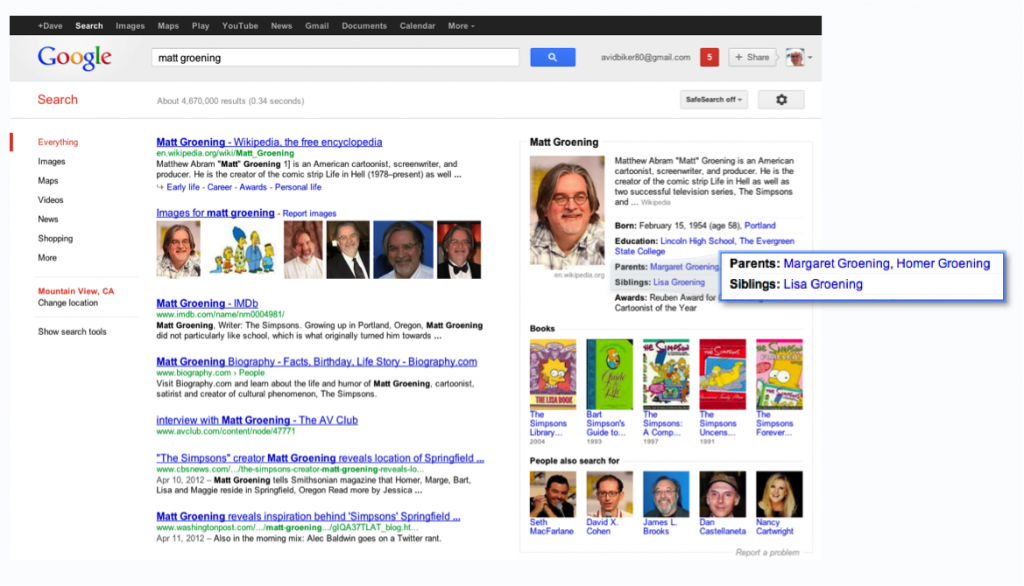Google Introduces Knowledge Graph
 The long-awaited Knowledge Graph from Google has finally been introduced to the public and will slowly become integrated into all Google searches. This will change the way that we search the internet and raise our expectations from search engines.
The long-awaited Knowledge Graph from Google has finally been introduced to the public and will slowly become integrated into all Google searches. This will change the way that we search the internet and raise our expectations from search engines.
What is the Knowledge Graph?
When you ask Google to search for something, what it does is scan different websites for the most likely answer. If you want to buy some electronics, it might suggest eBay or Amazon. If you want to know more about Mark Twain, it will recommend Wikipedia or the official Mark Twain website. But what if you want to know something specific?
2 + 2 =?
If you type “2+2” into a search engine, it will show you a list of websites that can calculate the answer. This is ridiculous, especially because Google’s algorithm uses math to determine which websites are best, and could easily answer this rudimentary equation.
So why not simply give the solution?
That is exactly what the masterminds behind Knowledge Graph want to change about search engines. If you ask, for example, “When was Mark Twain born?” you will now be given the answer, rather than have to click on further links to find it.
The Knowledge Graph is a collection of links and data that will appear on the right-hand column of search results. It takes out the middleman, so to speak, of having to click through further links to find the basic info you seek.
Why call it “Knowledge Graph?”
 As you can see from this screen grab, the Knowledge Graph for The Simpsons‘s creator Matt Groening has a few pictures of his books and fellow Simpson collaborators below the actual search result. These are related topics, which allow you to further explore your intended search target.
As you can see from this screen grab, the Knowledge Graph for The Simpsons‘s creator Matt Groening has a few pictures of his books and fellow Simpson collaborators below the actual search result. These are related topics, which allow you to further explore your intended search target.
For anyone who has spent hours upon hours browsing the near-infinite abyss of Wikipedia, you will know how easy it is to get lost in exploring a topic. That is what the Knowledge Graph intends to do.
All of the information provided by the Knowledge Graph is drawn from the internet, meaning it is not 100% guaranteed to be accurate. It is still a tremendous step toward searching for facts instead of leads. Apple has taken steps in this field with Siri, it’s charming iPhone personality, but look for Google to continue making strides towards improvement.
What does this mean for SEO marketing?
And now we get to the heart of the conversation: how will this affect SEO strategies?
Frankly, I don’t think it will change much, certainly not as drastic as Google’s Penguin update. Most internet marketing companies represent clients who are trying to sell items, not facts. If someone is searching for facts, they are probably not looking to buy a product, and vice versa. We will see if anything changes from this announcement, but for now I think staying the course is the best method to continue getting positive SEO results.
Check out the video below for more details:
Follow Trimark Internet Marketing Company on Twitter: @trimarkgroup
